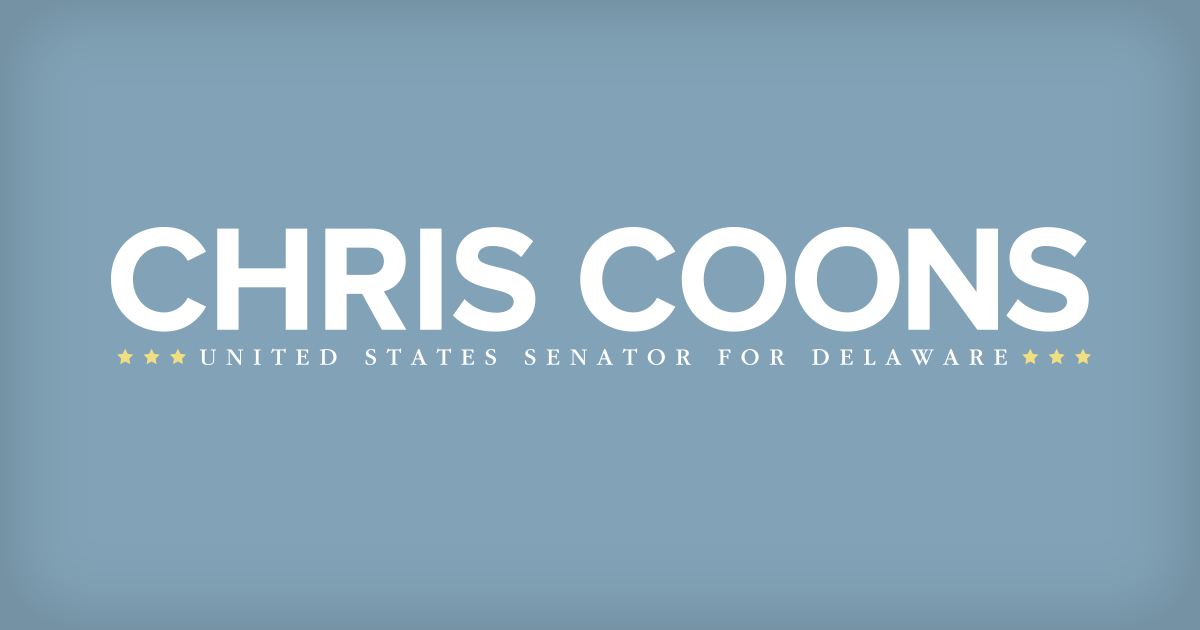Source: United States Senator for Delaware Christopher Coons
WASHINGTON – U.S. Senator Chris Coons (D-Del.), a member of the Senate Foreign Relations Committee, released the following statement on the U.S. Innovation and Competition Act, which passed the Senate today by a vote of 68-32.
“Today, the Senate took an unprecedented, bipartisan step towards positioning the United States to lead the world in industries of the future and effectively compete with China from a position of strength. I am proud to have worked with my Republican and Democratic colleagues on this legislation that will send a resounding, bipartisan message to the rest of the world that our democracy works,” said Senator Coons. “I’m pleased that this legislation includes critical economic, climate, and foreign policy initiatives that I’ve been working on in the Senate, including the creation of regional technology hubs around the country, the establishment of a nonprofit foundation to facilitate stronger partnerships between the Department of Energy and the private sector, and the authorization of significant amounts of new funding for the State Department and USAID to support the formation of an Indo-Pacific Strategy. I look forward to working with the Biden Administration to enact this ambitious legislation that will strengthen the United States at home and preserve U.S. leadership on the world stage.”
Sen. Coons is pleased the U.S. Innovation and Competition Act includes:
- The Partnerships for Energy Security and Innovation Act, introduced by Sens. Coons, Graham (R-S.C.), and Luján (D-N.M.), which would establish a nonprofit foundation for the U.S. Department of Energy (DOE) that would channel private-sector investments to support DOE’s mission and accelerate the commercialization of innovative technologies in energy, like next-generation batteries, low-carbon fuels, and advanced materials. The bill was included as an amendment cosponsored by Sens. Barrasso (R-Wyo.) and Collins (R-Maine) that passed the Senate 83-14.
- A major increase in basic science and high-tech R&D, with a push to create new tech hubs around the country, as called for in Sen. Coons’ Innovation Centers Acceleration Act.
- A $1.2 billion expansion of the Manufacturing USA program, which leverages private sector investment to develop new manufacturing techniques and train advanced manufacturing workers.
- The establishment of a supply chain preparedness and resiliency program in the Department of Commerce, as called for in Sen. Coons’ National Manufacturing Guard Act.
- The mobilization of all U.S. government diplomatic, development, security, and economic tools for an Indo-Pacific strategy that will allow us to compete with China from a position of strength. Specifically, the bill authorizes significant amounts of new funding for the State Department and USAID for this important purpose.
- An investment in the tools of American diplomacy and development. The bill invests in our allies and partners through sound regional strategies. It also invests in the values the U.S. shares with countries around the world by protecting democracy in Taiwan, Hong Kong, and Xinjiang.
- The authorization of a Digital Connectivity and Cybersecurity Partnership to help foreign countries expand and increase secure internet access and digital infrastructure in emerging markets, protect technological assets, adopt policies that foster open models of internet governance, promote exports of US information, communications, and technology goods and services, and build cybersecurity capacity.
- The declaration that the U.S. must reassert its leadership in the international standard-setting bodies that set the governance norms and rules for digital technologies, that USTR should negotiate digital trade agreements with member countries of the Five Eyes intelligence-sharing alliance, the European Union, Japan, and Taiwan, that the U.S. should lead a global effort to ensure the freedom of information in the digital age, and that the U.S. should convene a global effort to ensure that technological development does not threaten democratic governance.
- Provisions to strengthen the sustainability of the congressionally chartered Harry S. Truman Foundation and James Madison Memorial Fellowship Foundation. These programs, respectively, support states’ most promising emerging public leaders in attaining further education and extend to exceptional civics, history, and government teachers a chance to further improve their teaching of the Constitution. In doing so, the programs play important roles in preparing future generations to buttress our civic institutions.
###
